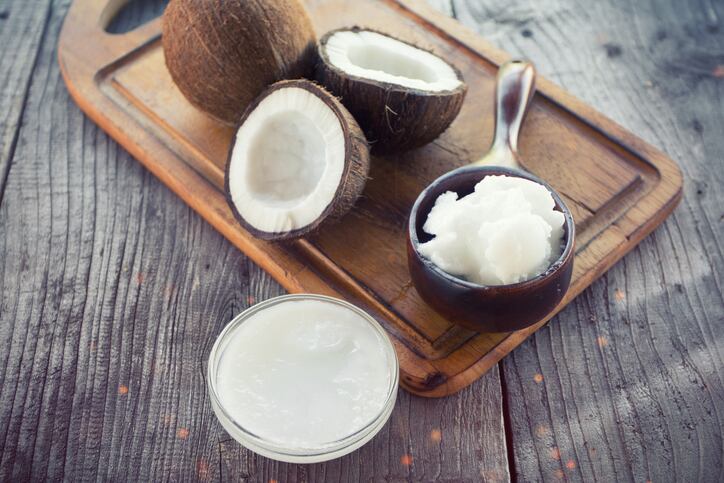We already know the fundamentals of good nutrition – the hard part is translating them into action given the obesogenic environment we live in - claimed Katz MD, MPH, FACPM, FACP, FACLM, founding director of Yale University's Yale-Griffin Prevention Research Center, and president of the American College of Lifestyle Medicine.
“For most of human history, calories were relatively scarce and hard to get, and physical activity was unavoidable," Dr Katz told delegates at the three-day event at Loma Linda University, CA, which attracted more than 750 attendees. "We have since devised a modern world where physical activity is hard to get and calories are unavoidable.”
‘Saturated fat has never been exonerated’
Dietary advice, meanwhile, has not really changed for decades, despite the constant refrain that the ‘experts’ keep changing their minds about what’s good for us (in reality, says Katz, experts are still telling us to quit smoking, exercise more, drink less alcohol and soda and fewer refined carbs and added sugar, and eat more fruits, veggies, and whole grains).
As for saturated fat, recent headlines proclaiming that ‘butter is back,’ lard is hip, and coconut oil has anti-inflammatory effects notwithstanding, the advice here has not changed either, he claimed, noting that the 2015 dietary guidelines still advise Americans to replace saturated fats with unsaturated alternatives.
A recent presidential advisory from the American Heart Association, meanwhile, concluded that “lowering intake of saturated fat [butter, lard, beef tallow, palm oil, palm kernel oil, coconut oil] and replacing it with unsaturated fats, especially polyunsaturated fats, will lower the incidence of cardiovascular disease." It also advised “against the use of coconut oil,” he added.
“Saturated fat has never been exonerated,” argued Dr Katz, who said the advisory – which was based on a review of intervention trials and observational studies - “didn’t have the impact” it should have had.
False narratives
The two meta-analyses (Siri-Tarino et al, American Journal of Clinical Nutrition, 2010; and Chowdhury et al, Ann Intern Med. 2014) that prompted the whole debate over whether saturated fats deserve such a bad rap merely proved that, "There is more than one way to eat badly [for example by replacing saturated fat with refined carbs instead of replacing beef with beans, for example], and the American public is committed to exploring them all," he said.
"A little less pepperoni pizza, but some more Snackwell's."
He went on to challenge the notion that nutritionists have only just woken up to the dangers of excess added sugar because they have been so fixated on cutting fat, and noted that Americans have not, in fact, savagely cut back on fat, as this "false narrative" suggests:
"We never reduced our intakes of fat in the first place. We actually increased our intakes of dietary fat overall. There are two ways to reduce fat as a percentage of calories. The sensible way is to eat less fat. What we actually did was just eat more total calories and fat as a percentage went down."
Has coconut oil lost its luster? New data from SPINS shows sharp sales declines in 2017

US retail sales of culinary coconut oil – a category demonstrating explosive growth in recent years – have continued to decline, according to new data from SPINS, with the strongest reversal of fortunes in the conventional (MULO) channel, where sales soared by 38.8% in 2015, but fell 5.2% in 2016, and sank 25.9% in 2017.
Read more HERE.
'No compelling data' to warrant move back to whole milk
Neal Barnard, MD, FACC, adjunct professor at George Washington University school of medicine, meanwhile, said a low-fat, high-fiber, low-GI plant-based diet appeared to deliver the best health outcomes, and said eating more fat - which has 9 cals/gram compared to 4/cals/gram for carbohydrates - was not the path to health and wellness.

If Americans should cut back on anything, meanwhile, they should cut back on cheese and processed red meat, he said. "Fat in cells contributes to insulin resistance... and fatty foods disrupt cellular metabolism."
Dr Lichtenstein: Let's not go backwards
Alice H. Lichtenstein, professor of nutrition science at Tufts University and one of the authors of the AHA presidential advisory, told ICVN delegates that butter – sales of which have surged as shoppers turned away from margarine – did not deserve to be “rehabilitated."
Meanwhile, there is “no compelling data” to support the current trend towards whole milk fat dairy products over low-fat dairy, especially as Americans continue to struggle with their weight, she argued.
Speaking to FoodNavigator-USA after the event, Dr Lichtenstein said: "I know we're seeing more whole milk products on the market, but there's just no advantage to it. If you drink a cup of whole milk vs skim milk that's twice the number of calories and I see zero advantage to it. Low and non fat dairy products are an outstanding source of nutrition, especially nutrients of concern."
We shouldn't talk about any macronutrient in isolation
While we know now that trans fats (from partially hydrogenated oils that used to be widely used in margarine) are bad news and that the nature of the fats you eat matters more than total fat, Americans have been told consistently since 2000 to replace saturated fat with unsaturated fats, she said.
The consistent message from the literature is that if you replace saturated fat with unsaturated fat, primarily of the polyunsaturated variety, you reduce the risk of cardiovascular disease, she said.
"We shouldn't talk about any macronutrient in isolation. Whenever we talk about saturated fat, we should talk about what to replace it with [eat nuts, seeds and beans instead of beef; choose olive oil over coconut oil etc etc]."
Coconut oil not a good choice
As for coconut oil, despite claims by the Food Babe (who attacked the authors of the AHA advisory rather than countering its conclusions with data) that the AHA is unfairly "villifying" coconuts, coupled with claims that the authors did not consider important studies in their analysis, "the data just isn't there" to support the notion that coconut oil is a healthier choice than oils lower in saturated fat, she said.
Critics of the advisory, she claimed, were also promoting flawed and irrelevant studies and citing conclusions from poorly designed meta-analyses that included such studies.
"We looked at the literature on coconut oil for the AHA advisory. There were two very odd review articles that made extraordinary claims that were totally unsubstantiated, so we didn't include them [in our review]."
Her comments came as the National Dairy Council published a blog post arguing that dairy foods have been unfairly tarred in the conversation about saturated fat, and that dairy foods, regardless of fat content, "have a neutral association with risk for cardiovascular health."
- Watch our video from ICVN 2018 with plant-based nutrition guru Sharon Palmer RDN HERE.
‘It would be a backward step if saturated fatty acid intakes started to creep back to where they were…’

Tom Sanders DSc, emeritus professor of nutrition and dietetics at King's College in London, UK, and a recognized expert in the relationship between dietary fats and cardiovascular disease risk, told FoodNavigator-USA that the “growth in the popularity of coconut oil came almost entirely from the marketing community and not the science community."
He added: “I think the review by Frank Sacks et al [ie. the AHA presidential advisory] is an accurate reflection of our state of knowledge. I would agree that coconut oil is not a healthy choice as it is high in saturated fatty acids and very low in polyunsaturated fatty acids. This means that it raised blood cholesterol levels more than most other fats. Lauric acid, which is a major component of coconut oil, has the greatest effect of all saturated fatty acids on raising LDL, but it also has the greatest HDL raising effect."
While the LDL raising effect contributes to increased cardiovascular risk, there is "no good evidence to show that the increase in HDL in favorable," he claimed. "While observational studies show that low HDL is associated with increased risk of CVD, genetic studies show that inheriting higher HDL cholesterol does not confer reduced risk of CVD.
“Furthermore, several other factors increase HDL such as polycyclic hydrocarbons, alcohol intake and other xenobiotics. HDL can increase because of a relatively non-specific activation of the peroxysomal oxidation system. HDL could also increase because cholesterol rich HDL particles are not being effectively removed from the circulation. For example, in experiments on animals fed high fat atherogenic diets, there is an increase in HDL with cholesterol.”
Saturated fats and heart health
He added: “Many people cite the health of people in the Pacific Islands and their use of coconut oil. These people now have the worst rates of obesity in the world. In the past, they cooked with coconut but did not use coconut oil. Coconut oil is widely consumed in Kerala State in India and this state has the highest average blood cholesterol level in India (Gupta et al, 2017). A population average cholesterol level is a good predictor of its risk of coronary heart disease (it is not a good predictor of stroke)."
As to the relationship between saturated fatty acids and cardiovascular disease risk, he said, "I think there is an important issue of threshold. The cohort studies in the USA tend to support that replacing saturates with polyunsaturated fatty acids (PUFAs) or even monounsaturated fatty acids (MUFAs) decreases risk, but not replacing them with refined carbohydrates.
“Coronary heart disease (CHD) has fallen markedly by about 66% in Western Europe and saturated fatty acids intakes are around 11-12% energy compared to 20% fifty years ago. PUFA intake has increased owing to increased vegetable oil intake, mainly rapeseed (canola), palm and sunflower seed oil in Europe as opposed to soybean and canola oil in the USA.”
In emerging economies and middle-income countries, however, “there does not seem to be a relationship between saturated fatty acid intake and CHD risk according to the PURE study," conceded Dr Sanders.
"However, total fat and saturated fatty acid intakes were relatively low in those countries.
“There does not seem to be much mileage in pressing for intakes below 10% energy intake. However, it would be a backward step if saturated fatty acid intakes started to creep back to what they were in the 1960s.”
